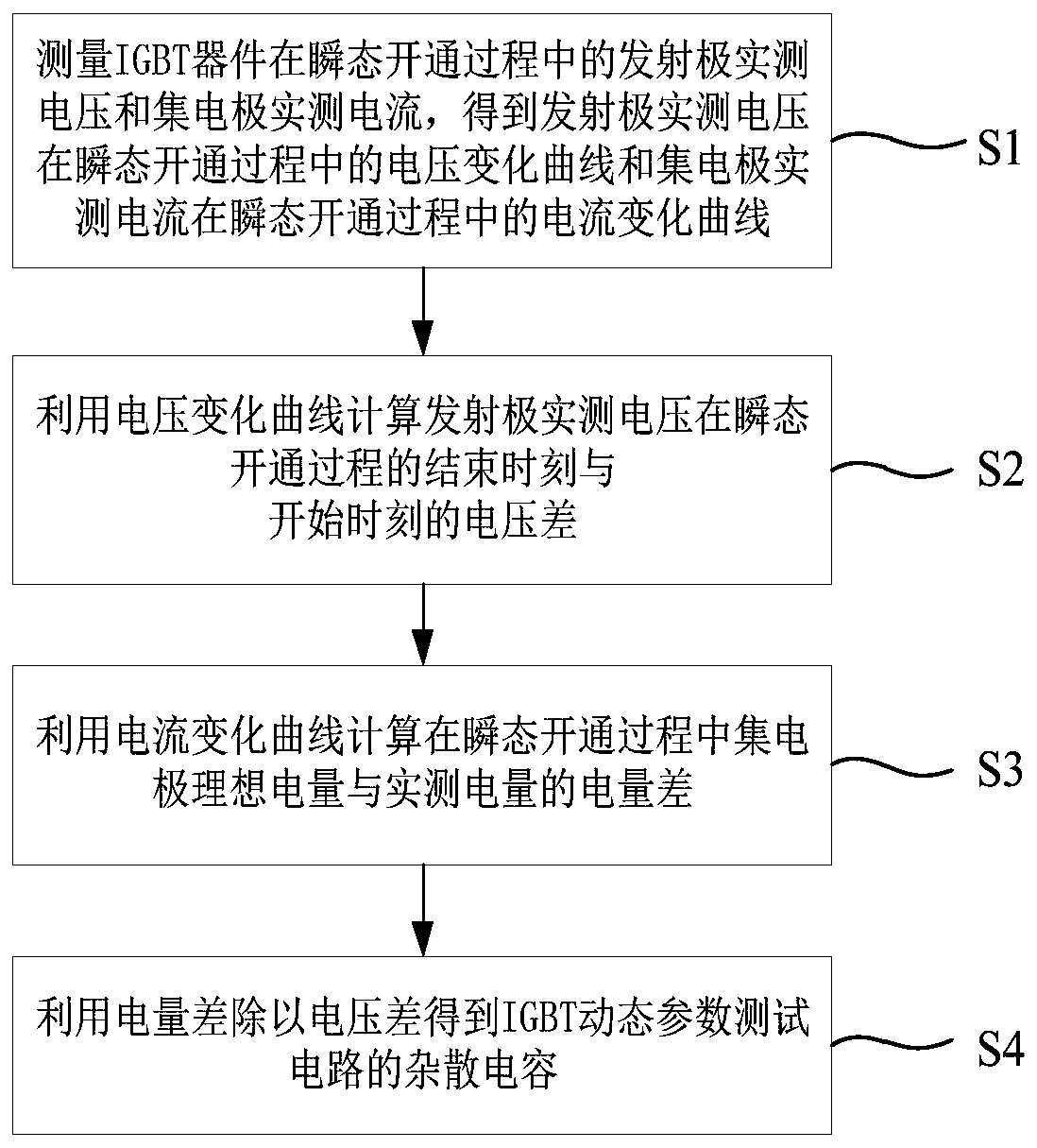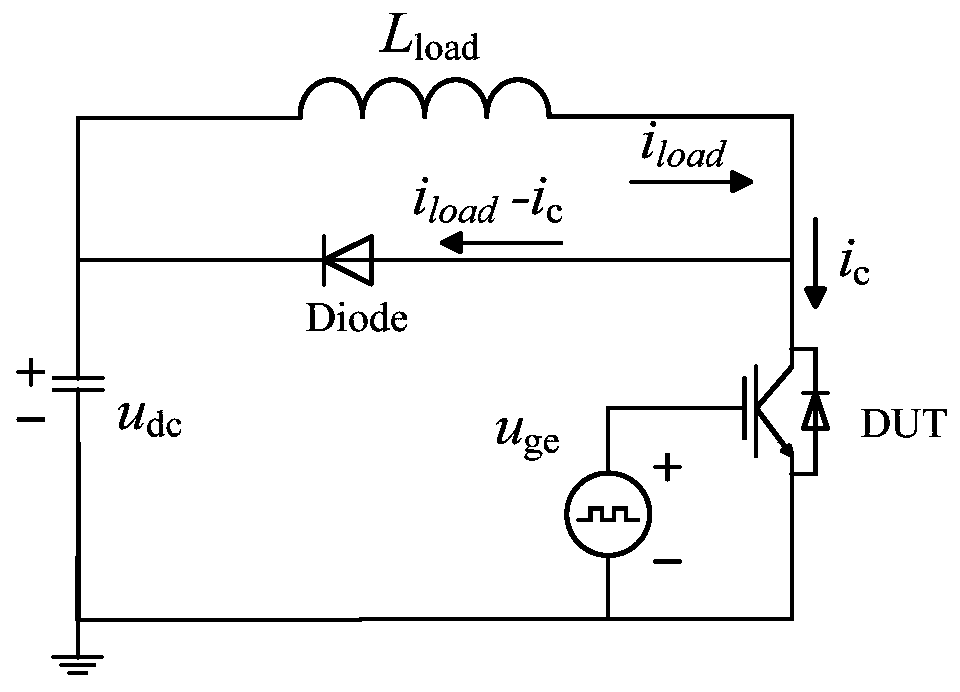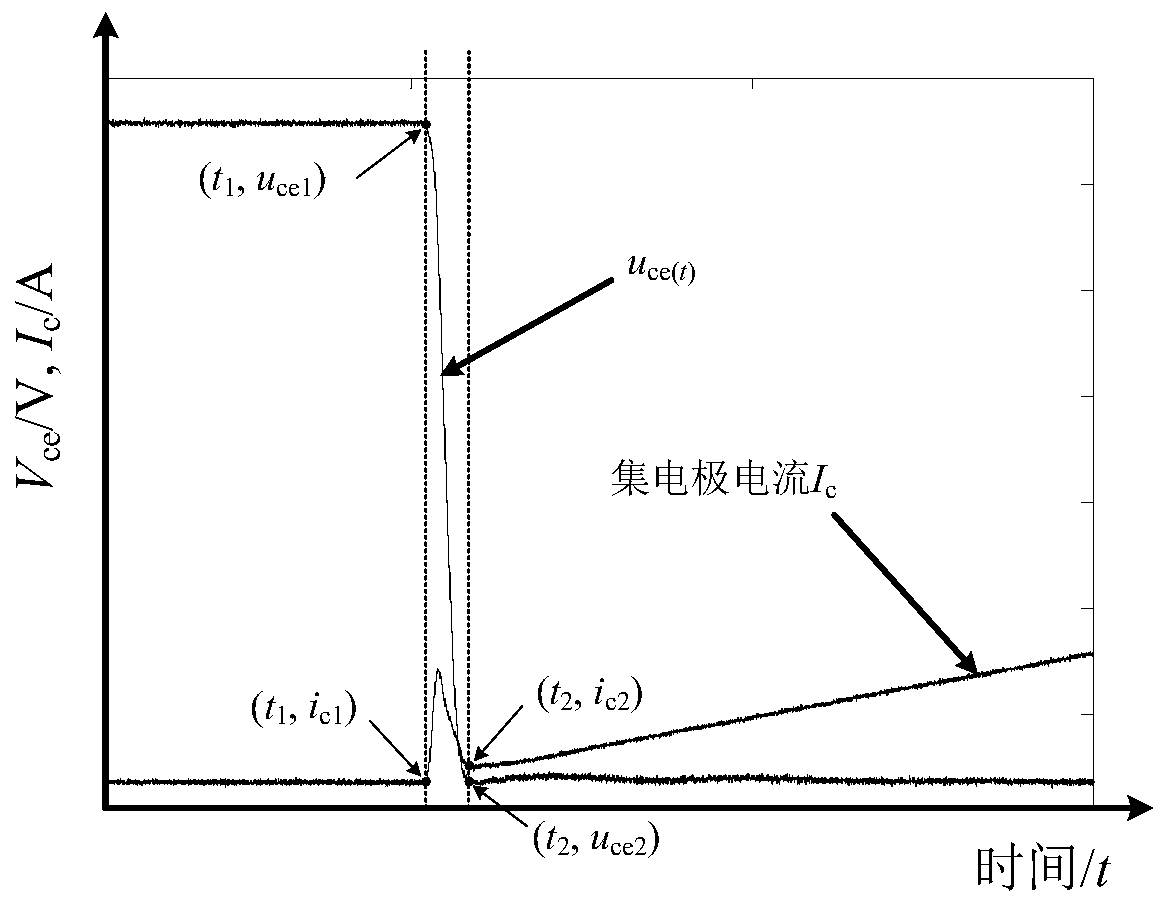IGBT dynamic parameter test circuit stray capacitance extraction method and system
A technology for testing circuits and dynamic parameters, which is applied in the direction of measuring resistance/reactance/impedance, measuring electricity, and capacitance measurement, etc. It can solve problems such as current distortion, affecting device parameter test results, and being unable to obtain stray capacitance in the IGBT test circuit. Achieve accurate measurement results
- Summary
- Abstract
- Description
- Claims
- Application Information
AI Technical Summary
Problems solved by technology
Method used
Image
Examples
Embodiment 1
[0044] An embodiment of the present invention provides a method for extracting stray capacitance from an IGBT dynamic parameter test circuit, wherein the IGBT dynamic parameter test circuit is used to connect the IGBT device to test the IGBT device, such as figure 1 As shown, the IGBT dynamic parameter test circuit stray capacitance extraction method of the embodiment of the present invention includes the following steps:
[0045] Step S1: Measure the actual emitter voltage and collector current of the IGBT device during the transient turn-on process, and obtain the voltage variation curve of the emitter actual voltage during the transient turn-on process and the collector current during the transient turn-on process. Current change curve.
[0046] In the embodiment of the present invention, based on the double-pulse test method, an IGBT dynamic parameter test platform is built, and the test circuit schematic diagram is as follows figure 2 Shown, where, DUT is the device und...
Embodiment 2
[0091] The embodiment of the present invention provides a kind of IGBT dynamic parameter test circuit stray capacitance extraction system, such as Figure 5 shown, including:
[0092] The acquisition module 1 is used to measure the emitter actual voltage and the collector current during the transient turn-on process of the IGBT device, and obtain the voltage change curve of the emitter actual voltage during the transient turn-on process and the collector current during the transient turn-on. The current change curve during the process; this module executes the method described in step S1 in Embodiment 1, which will not be repeated here.
[0093] The first calculation module 2 is used to calculate the voltage difference between the actual measured voltage of the emitter at the end moment and the start moment of the transient opening process by using the voltage change curve; this module executes the method described in step S2 in Embodiment 1, which is not described here Let m...
Embodiment 3
[0098] An embodiment of the present invention provides an electronic device, such as Figure 6 As shown, it includes: at least one processor 401 , such as a CPU (Central Processing Unit, central processing unit), at least one communication interface 403 , memory 404 , and at least one communication bus 402 . Wherein, the communication bus 402 is used to realize connection and communication between these components. Wherein, the communication interface 403 may include a display screen (Display) and a keyboard (Keyboard), and the optional communication interface 403 may also include a standard wired interface and a wireless interface. The memory 404 may be a high-speed RAM memory (Ramdom Access Memory, volatile random access memory), or a non-volatile memory (non-volatile memory), such as at least one disk memory. Optionally, the memory 404 may also be at least one storage device located away from the aforementioned processor 401 . The processor 401 can execute the method for ...
PUM
 Login to View More
Login to View More Abstract
Description
Claims
Application Information
 Login to View More
Login to View More - R&D
- Intellectual Property
- Life Sciences
- Materials
- Tech Scout
- Unparalleled Data Quality
- Higher Quality Content
- 60% Fewer Hallucinations
Browse by: Latest US Patents, China's latest patents, Technical Efficacy Thesaurus, Application Domain, Technology Topic, Popular Technical Reports.
© 2025 PatSnap. All rights reserved.Legal|Privacy policy|Modern Slavery Act Transparency Statement|Sitemap|About US| Contact US: help@patsnap.com



